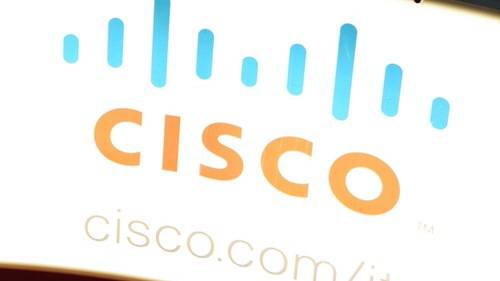
Cisco is one of those companies people have a hard time figuring out. Despite the confusion, though,he company has posted a 44% increase in income from last year in its fiscal second quarter earnings released on Wednesday. And its long-term future looks even better.
Clearly, some people have gotten Cisco figured out, because they’re doing business with the networking giant. The question is, what kind of business?
Retreat Or Strategic Withdrawl?
Look at the history of Cisco, and you see a company very much in retreat from the consumer market it had briefly coveted. Instead of routers for consumers and Flip video cameras, now its business is done back in the server rooms and network cabinets, as it once again targets the IT infrastructure of enterprises and governments around the world.
The drive to be the big-kid networking company on the proverbial block is more than just about selling equipment by the ton. It’s also about developing a platform on these devices upon which applications can be run. Along with apps on the clients and the servers, Cisco is envisioning applications that will also run on the routers and switches. The end result, Cisco believes, will be a network that instantly responds to the needs of the data flowing within it, without the need to consume resources at either end of the data transmission.
Software-defined networks are but one outcome of this type of network-app paradigm. All-in-one networking appliances built to handle very specific tasks are another.
This is not, by any means, a sudden pivot by Cisco. As far back as 2009, the company was holding developer contests and hackfests to kickstart this type of app development (Disclosure: in 2009, I was an honorary judge for one such contest, while working with the Linux Foundation.) This is a vision that it has seen for a long time.
Doctor, Doctor, Give Me The News
Ironically, even as Cisco seems to retreat into the server rooms and network centers, the impact of the company may be felt by more consumers than ever were touched by its actual consumer product lines.
Cisco execs have made no secret that the future of their business lies in the Internet of Things, the hardware-oriented network of communication that will let your car tell your mechanic a fan belt is 1,000 miles away from epic fail even as the car is toodling down the Interstate. Or the micro-sensors in your heart that will tell your doctor basically the same thing, if the futurists’ visions are on the ball.
As cool as that kind of information transfer will be, somebody’s got to build the network to handle all that data – and all the other big data that will be generated through the “regular” Internet of ecommerce and entertainment systems.
(See also Peta, Exa, Yotta And Beyond: Big Data Reaches Cosmic Proportions [Infographic])
This is the job Cisco envisions for itself, and even though this current repositioning may be painful, the end result may put the company in the best place to take on this massive undertaking.
Which would be a bright future, indeed.
Image courtesy of Adriano Castelli/Shutterstock.

















